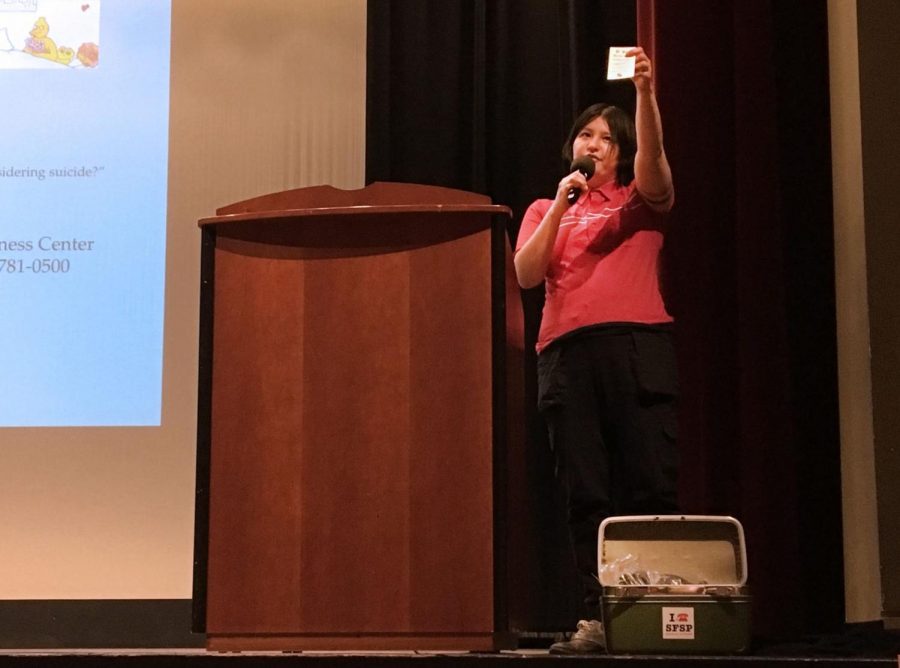Suicide prevention assembly equips students
Dany Ricci from San Francisco Suicide Prevention holds up her safety plan booklet, a guide she made for those feeling suicidal or emotionally unstable. Ricci spoke in assembly about signs an individual is suicidal and how to respond.
March 8, 2019
WEB EXCLUSIVE A speaker from San Francisco Suicide Prevention informed students in assembly about signs an individual is suicidal and how to respond.
“What I wanted students to get out of assembly was to learn ways to help themselves or other people if an emotional crisis situation were to come up,” Dany Ricci, Youth Outreach Coordinator who spoke at the assembly, said. “No one’s born knowing what to do.”
Possible warning signs of an individual being suicidal include extreme restlessness, anxiety, depression and isolation if persistent, according to Ricci. If students feel suicidal or suspect a friend is, Ricci says they can talk to Guidance Counselor Annie Egan or anonymously reach out to the SF Crisis line, National Suicide Prevention line or the Crisis Text line, which are free and open 24 hours a day.
Junior Mira White says assemblies about suicide prevention are useful for her own knowledge and help start important conversations about suicide and mental health.
“Depression and suicide definitely still have a stigma around them, and sometimes jokes are made that people can take very personally,” White said. “I personally have people who I am worried about, and I am sure that other people do too.”
Ricci says a common myth about suicide is that talking about it causes one to become suicidal.
“The whole reason that suicide prevention organizations exist is because they’re actually very effective in helping prevent suicide,” Ricci said. “If you can get someone to calm down, think about their situation and get out of that crisis mode, most people usually reconsider and feel more equipped to get help rather than take their own life.”
Feeling suicidal is very treatable, according to Ricci. Freshman Clementine Mohun says that conversations about suicide help reduce stigma and encourage individuals to get help but should not end at the end of assembly.
“It is definitely helpful to have an assembly dedicated to suicide prevention, but we should be talking about it more as well,” Mohun said. “This is a conversation that needs to continue.”
If you feel suicidal or suspect a friend is, you can call the SF Crisis Line at (415) 781-0500 or the National Suicide Prevention Lifeline at (800) 273-8255 or text the Crisis Text number at 741-741.










